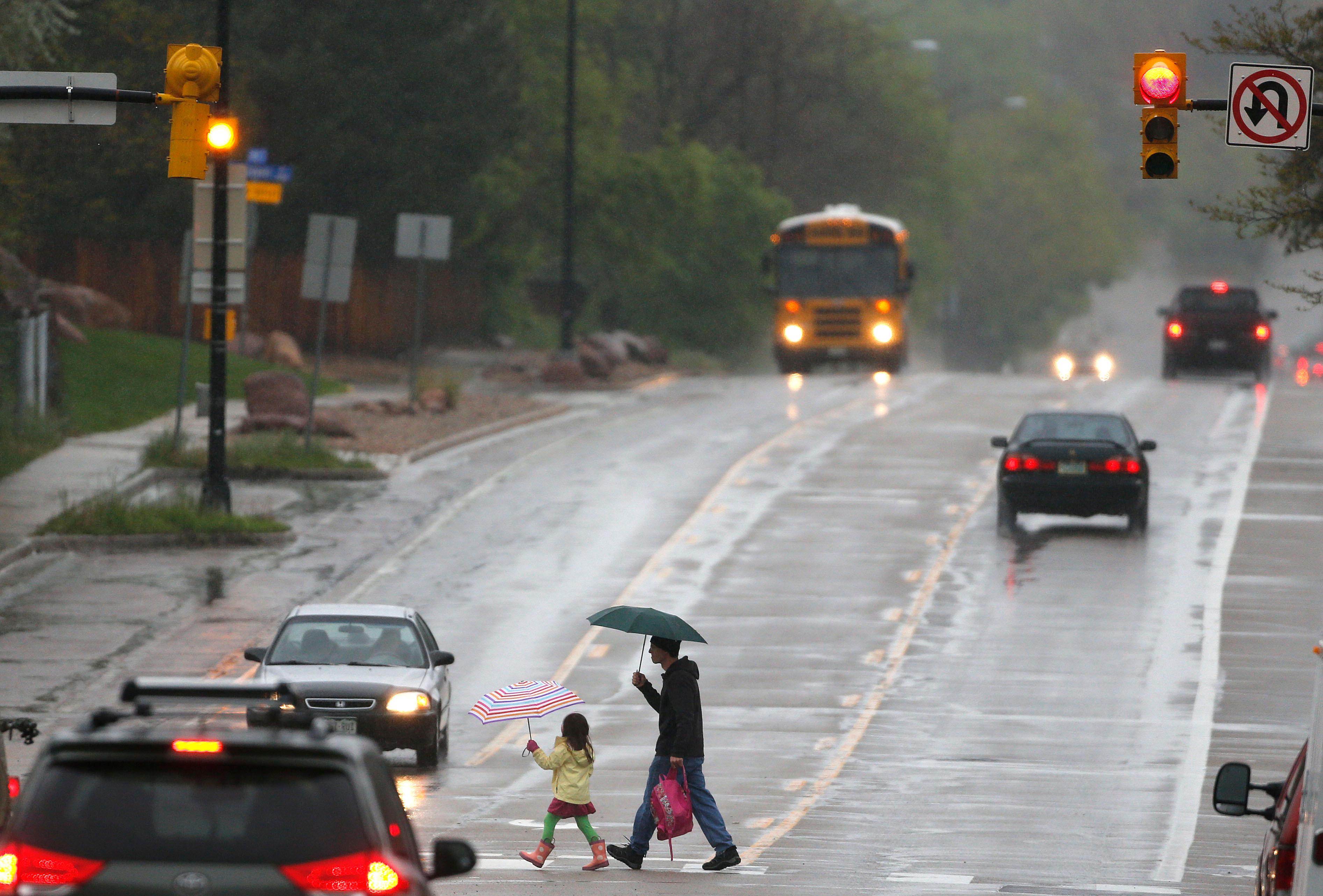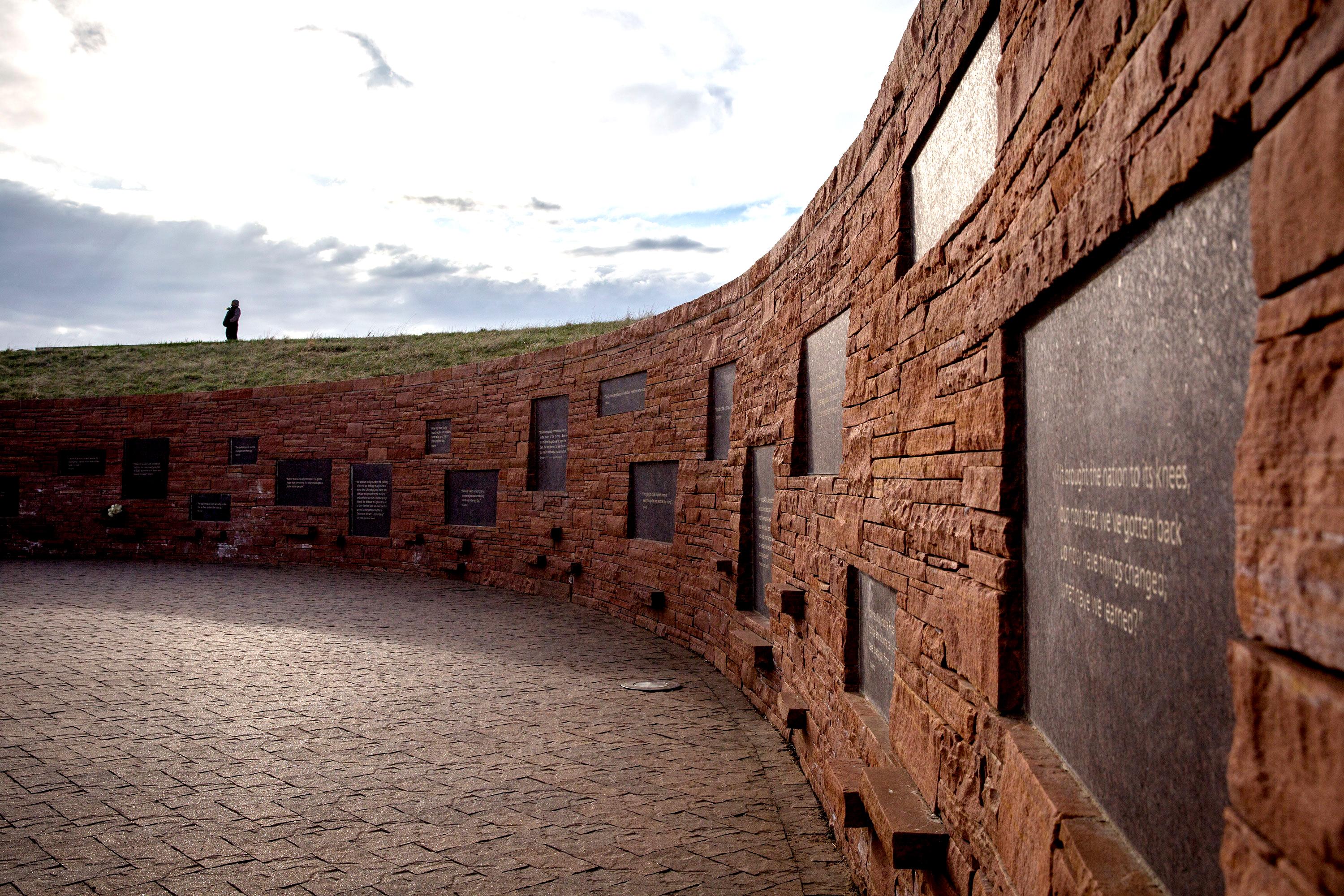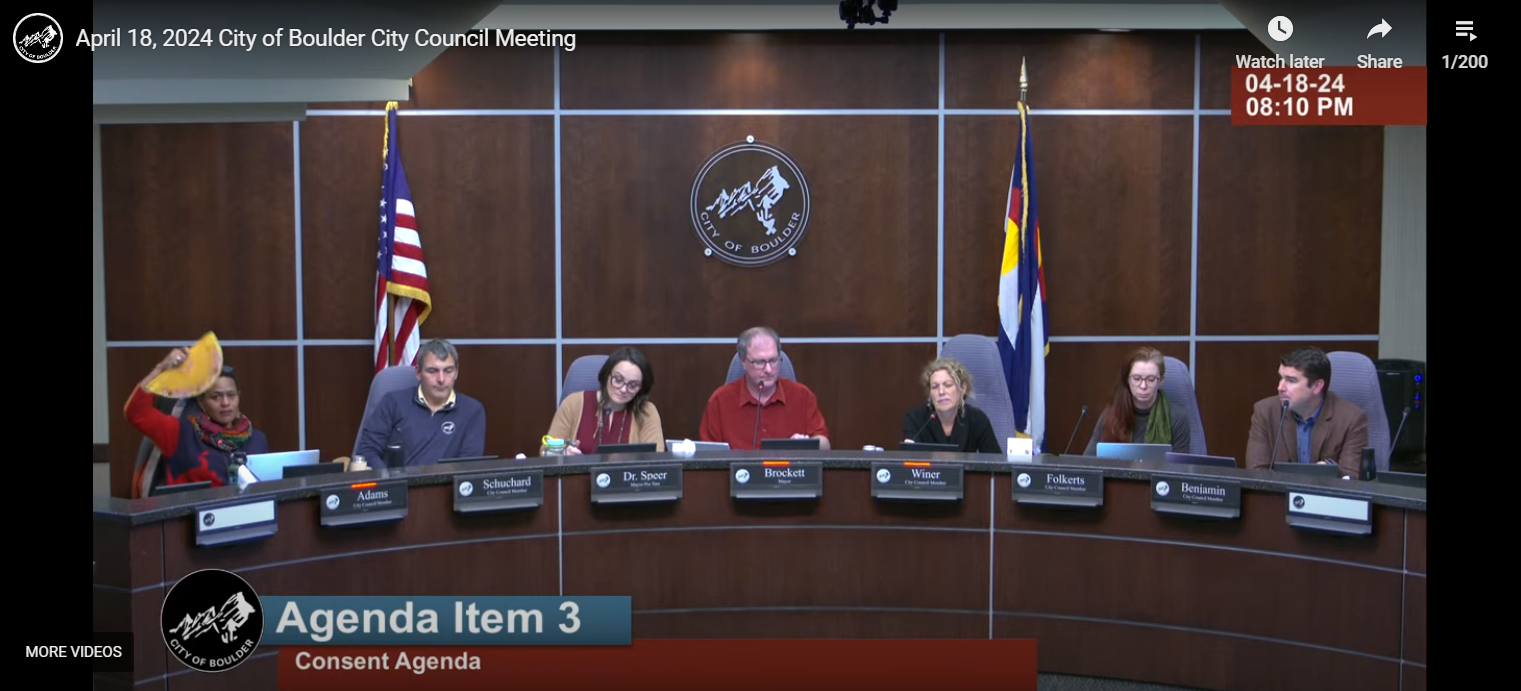A oil storage tank near the small city of Evans, south of Greeley. Tanks like this have been damaged by flood waters, leaking thousands of gallons of oil into the environment. [CPR/BMarkus]
Flood waters have ravaged buildings, roads, and crops, and the destruction extends to oil and gas operations near flooded rivers in northern Colorado. The state is monitoring five major spills, up from just two on Thursday. More than 20,000 gallons of oil have spilled into the environment.
Near the the South Platte River just south of Greeley, Bob Winkler stands on a dirt road looking out at a oil storage tank tipped to the right surrounded by shallow water.
“I’m sick, this is disgusting,” said Winkler. “I moved to Colorado to have the clean air and the beautiful skies and the wonderful weather, and this is what we see.”
Winkler is a board member of a local environmental group Weld Air and Water. He’s been checking on well sites like this because he doesn’t trust that government and industry will clean it up quickly.
“What are our government agencies doing? What are our city officials doing?” said Winkler. “I’ve been coming here since last Saturday, and I’ve yet to see anyone even come near this thing, everyday I’m out here and there’s no one out here doing anything.”
But government agencies say they have been busy. Friday afternoon state oil and gas regulators said 6 teams of inspectors were in the field dealing with dozens of compromised sites.
Tisha Schuller, president of the Colorado Oil and Gas Association, says oil companies like Anadarko and Noble have hundreds of people responding to the spills.
More than 20,000 gallons of oil have leaked into the environment from damaged surface tanks, but Schuller says keep that in context to the situation.
“So when we have flood waters that have gone through landfills and waste water treatment plants, all manners of industrial-type sites, and agriculture land, oil and gas’s contribution is relatively small.”
Schuller says these tanks, which collect oil at the surface, have toppled, but the wells which tap the oil below ground are not leaking, according to the most recent aerial surveys.
“If you had a well that was flowing, you would see evidence of that in these surveys,” said Schuller. “We’re going to remain cautious, and remain extremely progressive in how we get out there and insure that we’re onsite as soon as we can be.”
Schuller says the concern going forward is what will be found as flood waters recede in the hardest hit parts of the state.
“I would anticipate that we may see more affected surface facilities, said Schuller. “We have crews monitoring around the clock, as soon as we can get into a location we do and we inspect it, we will contact federal, state and local authorities.”
At a press conference Thursday, Governor John Hickenlooper agreed the spills were a problem, but not the biggest issue right now.
“The several small spills that we had have been very small relative to the huge flow of water through here.”
And he shot down the idea of a moratorium on drilling in response to the flooding damage.
“Unless there are other facts that I am not aware of, I wouldn’t think that we would merit a moratorium.”
Back along the South Platte River, by the toppled oil storage tank, Jamie Cook - who lives nearby is snapping photos with her phone.
“Wow,” said Cook. “We’re on the other side of it, so I was just driving around today to look at it, but it’s powerful water taking out those towers like that.”
She says she has every confidence government and industry will clean up the mess.








